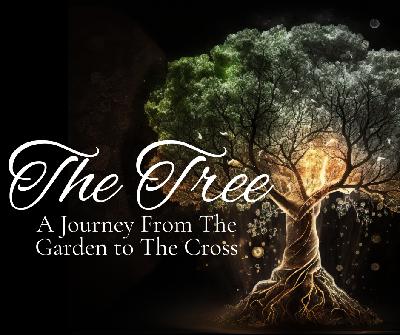Grounded Faith
Description
If there was any passage in the Bible that appears to be a contradiction from what we read in other books of the Bible, it is James 2:24 , which states: “You see that a person is justified by works and not by faith alone.” This verse seems to contradict what Paul wrote in his epistle to the Ephesians: “For by grace you have been saved through faith; and this is not of yourselves, it is the gift of God; not a result of works, so that no one may boast” (2:8-9). So which is it? Is salvation a gift from God that can be received apart from anything we do, or is salvation something you have to work hard at keeping?
In the 1980s these questions were popularized and brought to the forefront of theological discussions had in many homes and churches. At the heart of these discussions was the question: “What does it means to believe in Jesus?” Zane Hodges wrote his book, Absolutely Free arguing that nowhere in the Bible does it teach that belief in Jesus for eternal salvation requires a person to repent of his/her sins. Hodges went as far to say that a person can be a Christian and at the same time not love God. In response to Zane Hodge’s book, John MacArthur wrote The Gospel According to Jesus; in his book, he argued that true salvation involves a lifelong commitment to Jesus, which is the evidence of true biblical belief. Those who agreed with Zane Hodges labeled the teachings of people like John MacArthur as “Lordship Salvation.” Those who agreed with John MacArthur labeled the teachings of people like Zane Hodges as “Easy Believism.”
Far from being a modern controversy, the argument between Hodges and MacArthur was simply an old theological debate dressed in newer garb. I do not have the time to give a history lesson as to what led up to Hodges and MacArthur duking it out in the form of books, but you should know about the idea ‘if you just believe and say a prayer, that you will be “saved.”’ There is a theological stream that led to language you are probably familiar with, such as: “Ten said ‘Yes’ to Jesus!” Or you may have had someone in your life encourage you to repeat a prayer, for if you just say the words, you can be saved just so long as you believe the words to be true in your mind.
In 1763, a well-known Scottish author and pastor named Robert Sandeman (1718–1771) arrived in Danbury, Connecticut. His central teaching was that “bare assent to the work of Christ alone is necessary for salvation.” In other words, Sandeman argued that simply believing in Jesus was enough to be saved—you didn’t have to follow Him or demonstrate love for Him. In Sandeman’s view, requiring evidence of love or a changed life made works a necessary part of salvation, which he firmly rejected.
By the time Sandeman set foot in Connecticut, his writings and ideas had already spread widely through American churches. Ezra Stiles, who befriended Sandeman and would later become president of Yale University, remarked, “I believe he has sown a seed in America which will up and grow, though I have no apprehension of any great ill effect.”[1]
Sandeman’s doctrine, which came to be known as “Sandemanianism” and is now often labeled “easy-believism,” was more than a theological curiosity—it ignited debate and concern that ripple through the church to this day. What academic circles now call “Free Grace Theology” became the very ground upon which Zane Hodges and John MacArthur sparred. The warnings of giants like John Wesley (an Arminian) and Andrew Fuller (a Calvinist), echo through history: Sandemanianism, they cautioned, might lull the church into a shallow faith, one that confuses mere intellectual agreement with living trust. Its legacy remains, challenging and shaping the contours of American evangelicalism across generations.
My hope today is not that you are more informed, but that you are more grounded in the Bible. At the end of the day, it doesn’t matter what I think; what matters is what does the Bible have to say about it! So, let us turn to our text this morning to find out.
A Grounded Faith is an Active Faith (vv. 14-17)
James askes a question in verse 14, “What use is it, my brothers and sisters, if someone says he has faith, but he has no works? Can that faith save him?” He then gives us an example of what a faith devoid of works looks like in real-time: “If a brother or sister is without clothing and in need of daily food, and one of you says to them, ‘Go in peace, be warmed and be filled,’ yet you do not give them what is necessary for their body, what use is that” (v. 15)? What is James getting at in these verses? He is picking up on what He said in 2:1-13 and forcing us to take a long, hard look into the mirror of God’s word to examine our hearts.
If you say that your faith is in Jesus as the One who died for your sins and rose from the grave, then how can you pass by a brother or sister who shares your faith in Jesus who is in need and do nothing to help that person? Genuine faith will result in genuine, although not perfect, love for those who share in your faith in Jesus? Just so you know, James is not the only one who asks this question. The apostle John had some things to say about a faith grounded in Jesus being an active faith: “Beloved, let’s love one another; for love is from God, and everyone who loves has been born of God and knows God. The one who does not love does not know God, because God is love. By this the love of God was revealed in us, that God has sent His only Son into the world so that we may live through Him. In this is love, not that we loved God, but that He loved us and sent His Son to be the propitiation for our sins” (1 John 4:7-10). Where on earth did John and James get their understanding of genuine faith from? They both got it from Jesus, who said, “I am giving you a new commandment, that you love one another; just as I have loved you, that you also love one another(John 13:34 ).
Again, John wrote in his epistle, “This is His commandment, that we believe in the name of His Son Jesus Christ, and love one another, just as He commanded us. The one who keeps His commandments remains in Him, and He in him. We know by this that He remains in us, by the Spirit whom He has given us” (1 John 3:23-24). But, John and James are not the only ones who understood that a faith grounded in Jesus was an active faith, for the apostle Paul wrote: “For by grace you have been saved through faith; and this is not of yourselves, it is the gift of God; not a result of works, so that no one may boast. For we are His workmanship, created in Christ Jesus for good works, which God prepared beforehand so that we would walk in them” (Eph. 2:8-10).
Listen, salvation is the free gift of God made available through His Son that you cannot earn or work for. However, when you are genuinely saved by Jesus, you are then “born again” (John 3:1-21). When you are “born again” you go from being spiritually dead, to being made spiritually alive with Jesus (Eph. 2:1-6). The evidence that you are alive with Christ is a faith that is living! In the words of Paul, and in light of our salvation that is from God, you are to “walk in a manner worthy of the calling with which you have been called...” Paul did not stop there, he continued: “walk in a manner worthy of the calling with which you have been called, with all humility and gentleness, with patience, bearing with one another in love” (Eph. 4:1-2).
The clearest sign of being born again is a life transformed—a faith that is alive, first in love for God and then in love for others. This is why Jesus described a coming day of judgment, when all people will be separated into two groups: the sheep on His right and the goats on His left. The difference between them will be revealed in how they responded, with love and compassion, to those in need. Jesus will say to the sheep, “Come, you who are blessed of My Father, inherit the kingdom prepared for you from the foundation of the world. For I was hungry, and you gave Me something to eat; I was thirsty, and you gave Me something to drink; I was a stranger, and you invited Me in; naked, and you clothed Me; I was sick, and you visited Me; I was in prison, and you came to Me’ (Matt. 25:34-36). Those who ignored the brother or sister who was hungry, thirsty, need shelter, needed clothing, was sick and needed care, or was in prison... will hear these words: “Depart from Me, you accursed people, into the eternal fire which has been prepared for the devil and his angels.... Truly I say to you, to the extent that you did not do it for one of the least of these, you did not do it for Me, either.’ These will go away into eternal punishment, but the righteous into eternal life” (25:41 , 45-46).
A Grounded Faith is a Sacrificial Faith (vv. 18-26)
When it comes to what read in James and what we read in Paul’s letters, Timothy Keller said when looking at something with only one eye, you lose depth perception. To appreciate something for what it really is, you need two eyes. Why? Because each eye is looking from a slightly different perspective










